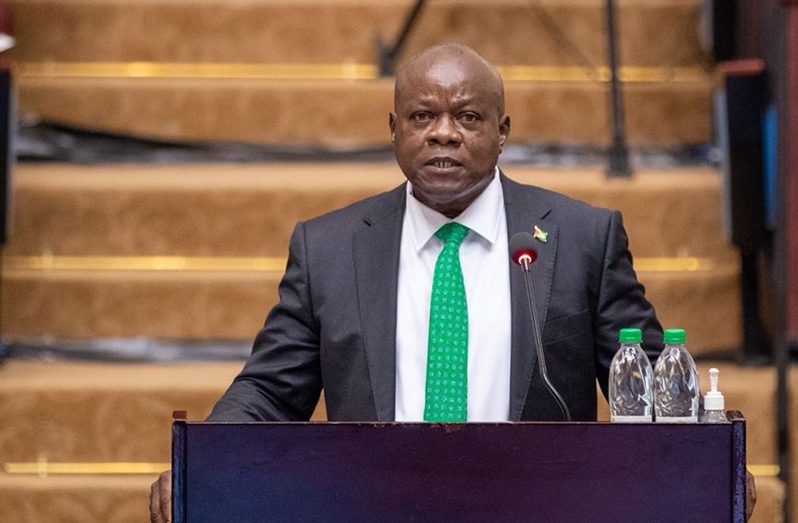Guyana’s Parliament passed a motion on Friday, condemning Venezuela’s decision to hold elections in the Essequibo region. The move affirms the country’s sovereignty over the territory and calls on the international community to uphold international law.
The vote was marked by a rare split, as opposition lawmakers walked out in protest over how the government handled the controversy. The walkout followed the leader of the opposition’s contributions on the Government’s motion.
The motion reaffirmed Guyana’s longstanding position that the Essequibo belongs to it and denounced Venezuela’s planned May 25 vote in the area as a violation of international law and the orders of the International Court of Justice (ICJ).
The resolution also urged international actors to support Guyana in defending the ICJ’s jurisdiction and the rule of law. It directed that official copies be sent to global bodies, including the United Nations, the Organization of American States, and the Commonwealth.
“While our intelligence is that there is currently no physical activity taking place in any of our communities close to the border or suggests there is any preparation for elections to be conducted in our Essequibo, it is important for Venezuela to understand that Guyana will not be bullied, threatened or intimidated to surrender any portion of our patrimony,” Foreign Affairs Minister Hugh Todd said as he presented the motion to the House.
Venezuela has rejected the ICJ’s April order barring it from holding elections in Essequibo, saying it does not recognize the court’s authority. Guyana had requested the ruling in response to Venezuela’s announcement that it would organize state and legislative elections for the region. Caracas claims the region despite decades of international recognition of Guyana’s administration of the territory.
Tensions between the two countries have also risen in recent weeks following skirmishes between persons in civilian clothing on the Venezuela side and Guyanese military personnel near the border. Guyana’s military reported the incidents but has not attributed them directly to the Venezuelan government.
While Guyana’s government and opposition have historically presented a united front on the territorial controversy, Opposition Leader Aubrey Norton sharply criticized the administration for failing to consult on the language of the motion or heed recommendations offered by the opposition. Norton affirmed that the territory belongs to Guyana, but ultimately refused to support the motion and exited the chamber along with most opposition members.

“As a government, you manifest no interest in working with the opposition, and now, we are compelled to reciprocate,” Norton told the House.
The move marked the first time in recent memory that the opposition broke ranks with the government on the territorial controversy in institutional proceedings.
The case at the ICJ centers on the validity of the 1899 Arbitral Award that legally determined the boundary between Venezuela and then-British Guiana. Venezuela accepted the award for decades before declaring it null and void in 1962, laying claim to more than two-thirds of Guyana’s landmass in the Essequibo region.



